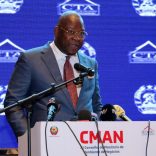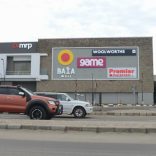Mozambique: Business owners ask that Local Content policy includes public procurement
Mozambique: Post-election crisis reduced demand in all business sectors – CTA Economic Briefing

Screen grab: Public Integrity Centre
Mozambique’s private-sector Confederation of Economic Associations (CTA) said on Wednesday that the post-election crisis in the country had reduced the level of demand in all sectors, with hotels and restaurants being the most affected.
“[T]he spread of the post-election crisis led to a reduction in the level of demand in all sectors, vandalism of establishments and looting of goods. The private sector has been experiencing demand constraints resulting from the electoral crisis. However, the situation improved towards the end of the quarter,” is the opinion expressed in the business robustness index for the first quarter, released by the CTA on Wednesday.
The hotel and restaurant sectors “still suffer” from the lack of demand for services, according to Mozambican businesspeople, who also complain about high production costs, despite the “stability of prices of managed goods”.
“Business performance was also conditioned by the increase in production costs, despite the reduction in fuel prices and the stability of prices of other managed goods [water, electricity]. This situation mainly affects the industry and transport sectors,” the index states.
The president of the CTA said on Wednesday that, although the situation is “better under control”, the post-election demonstrations, which have been taking place in Mozambique since October, have temporarily reduced investor confidence,” especially in SMEs [small and medium enterprises] and commerce” and in the country’s attractiveness as a tourist destination.
“This fact suggests the need for action by the government, the private sector and society as a whole to, on the one hand, ensure socio-political stability and, on the other, project the country as a preferred destination for investment and tourists,” Agostinho Vuma said during the economic briefing in Maputo.
In the same document, Mozambican employers point to a 1% increase in the business robustness index in the first quarter, which stood at 26%, compared to 25% recorded in the fourth quarter of 2024.
The CTA pointed to the restoration of socio-political stability and an increase in transport flow as roadblocks were reduced together with the reduction in fuel costs as some of the factors that influenced the increase in business robustness.
“The first quarter of 2025 showed signs of business recovery in a still fragile context,” said Vuma.
Mozambique has experienced the worst protests the country has seen since the first multi-party elections (1994), led by former presidential candidate Venâncio Mondlane, who rejects the October 9 election results that gave victory to Daniel Chapo.
Almost 400 people have lost their lives as a result of clashes between the police and protesters, according to data from civil society organizations, which also led to looting and destruction of businesses and public infrastructure.
The Mozambican government previously confirmed at least 80 deaths, in addition to the destruction of 1,677 commercial establishments, 177 schools and 23 health units during the protests.
However, on March 23, Mondlane and Daniel Chapo, the inaugurated President, met for the first time and a commitment was made to end post-election violence in the country, although mutual criticism and accusations continue to be made in the public statements of the two politicians.












Leave a Reply
Be the First to Comment!
You must be logged in to post a comment.
You must be logged in to post a comment.